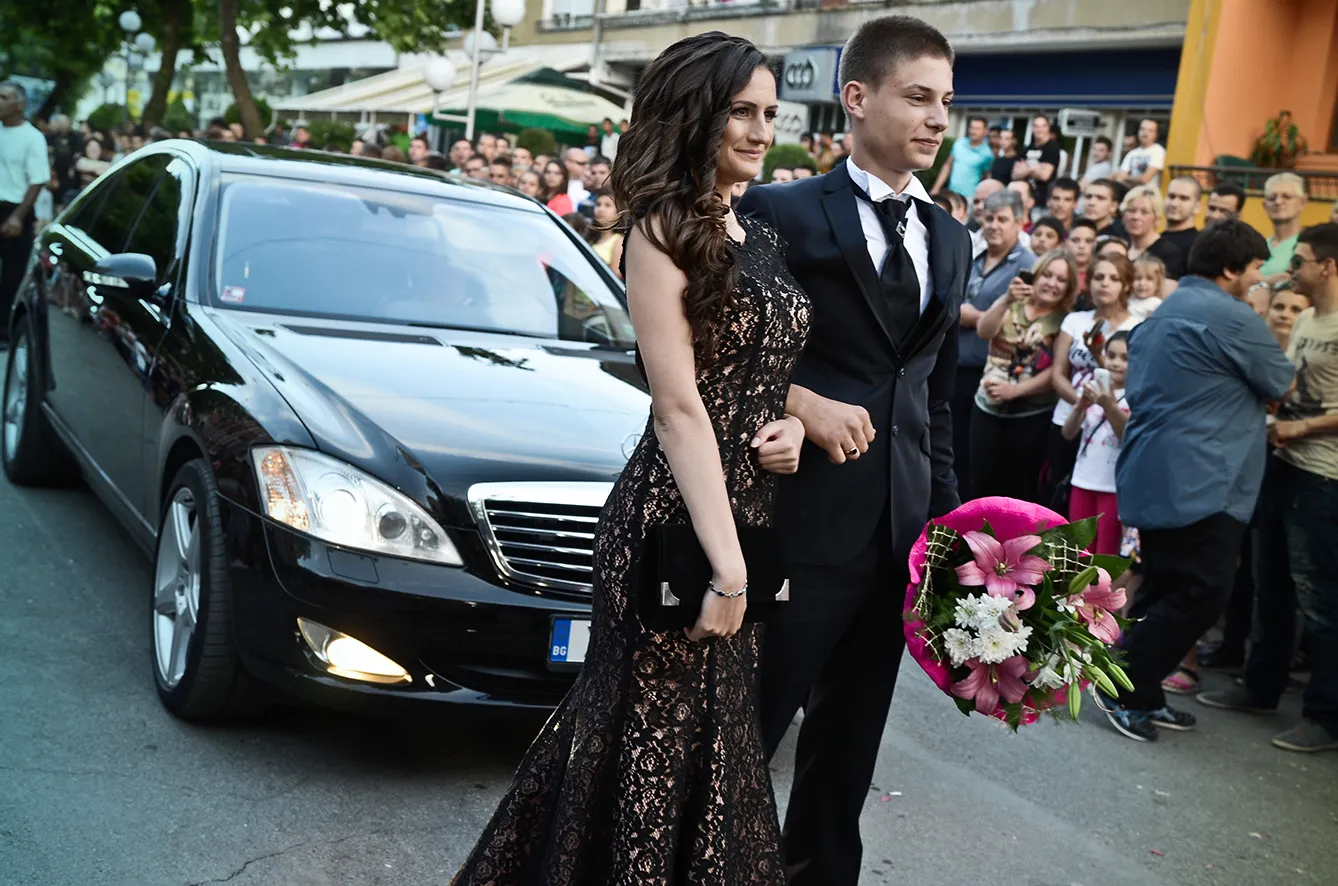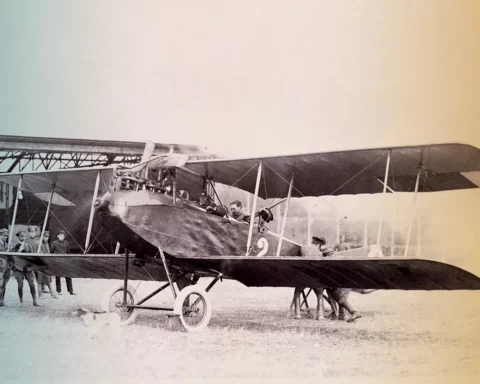As family members, friends, and total strangers flock to watch the improvised fashion shows, the models – high school seniors on their way to prom – are making a giant step into adulthood, one puffy dress or a few sizes bigger than recommended suit at a time. Welcome to the show.
Proms are a cherished tradition in Bulgaria. The beginning of celebrations in Bulgaria is announced by (usually borrowed) luxury cars blowing their horns and thus announcing that the high school student inside the vehicle is dressed to the nines and on their way to prom.
The shouting from the car window, which accompanies the blasting of the horn, announces to the spectators the passengers’ symbolic passing into adulthood. While ways of celebrating this pivotal moment differ over the decades in Bulgaria, the leading motif remains the same: a celebration of freedom.
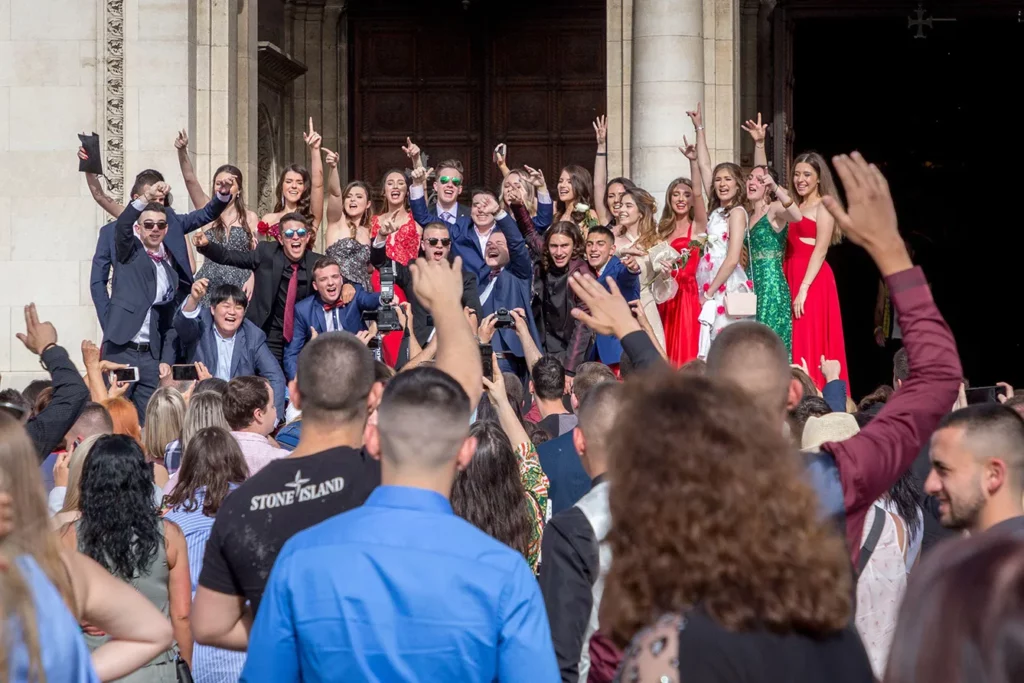
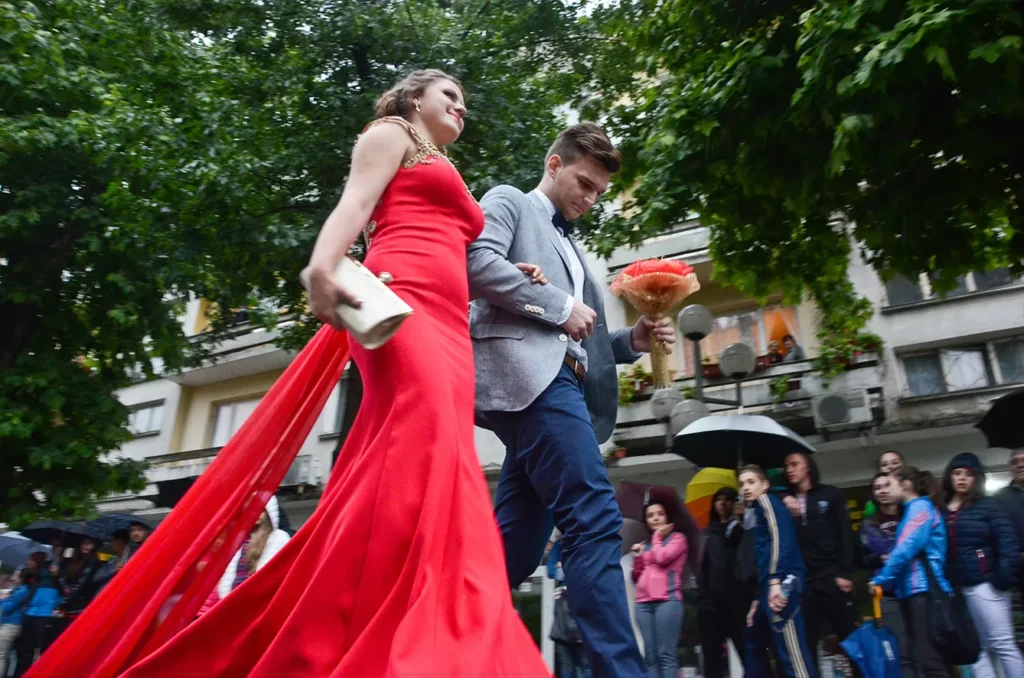
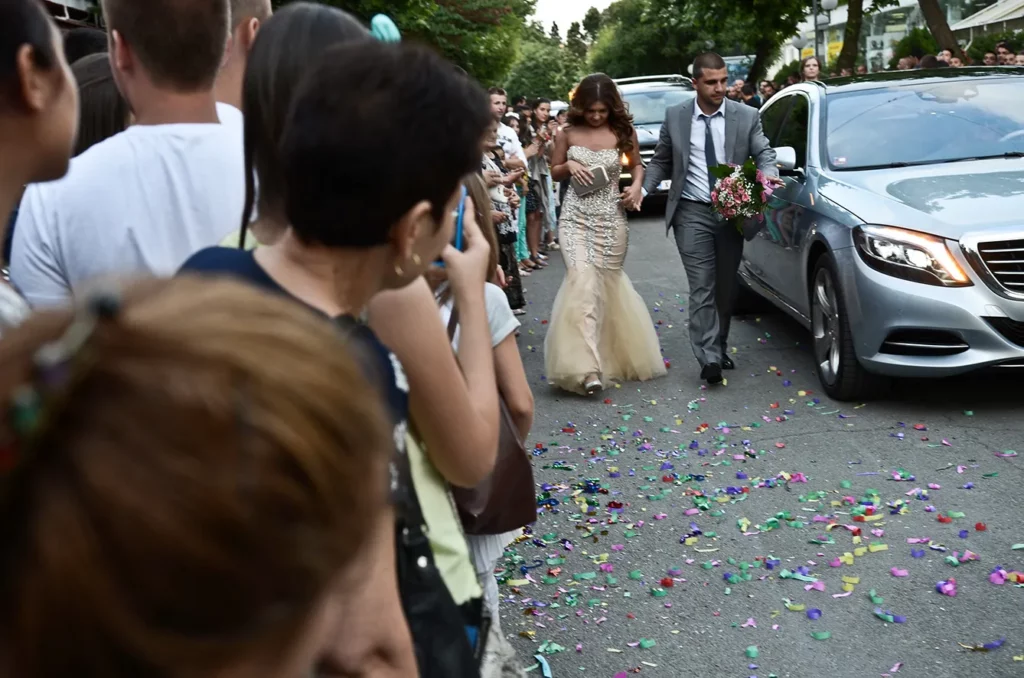
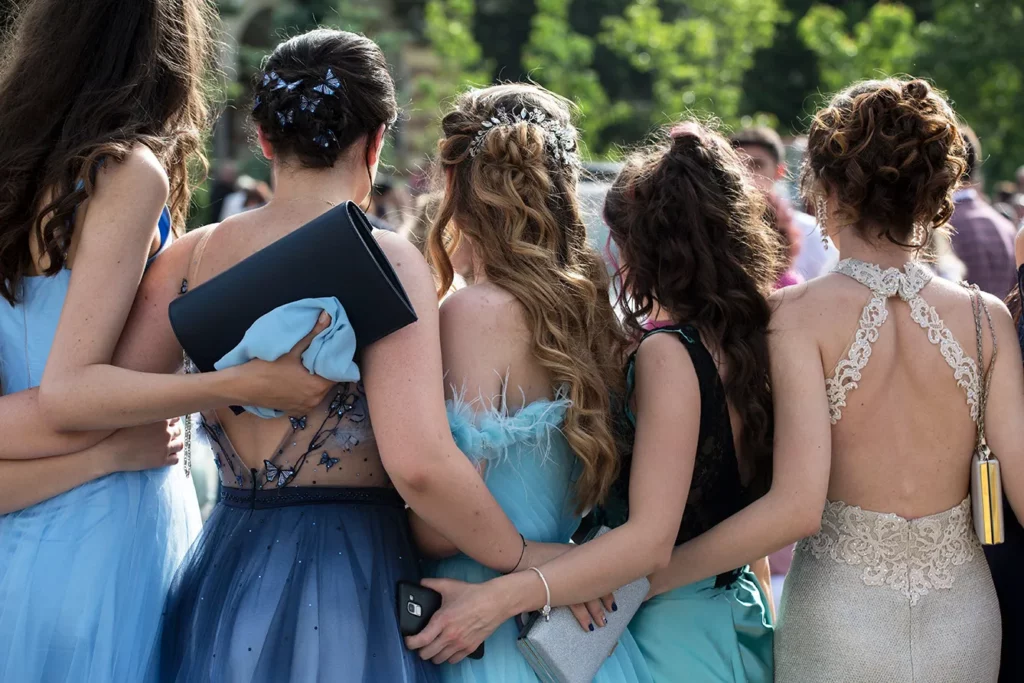
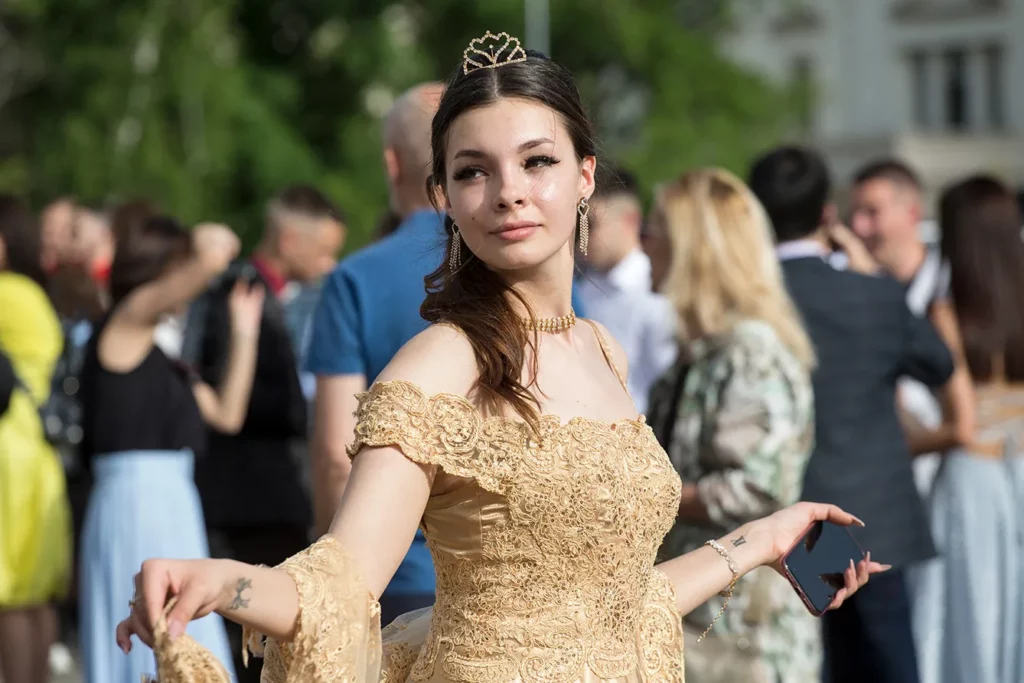

The last two decades in high school graduation fashion in Bulgaria are marked by the “more is more” credo, especially when it comes to dresses. Those looking for less “busy” dresses might not opt for a classic little black dress either. For some high school graduates, a simple dress means a very skimpy dress, leaving more conservative spectators at the fashion parade wondering how the parents agreed to something so revealing.
The (Bulgarian) Graduates
“The participants – the graduates – need this pomp at the prom. For society, however, it seems ridiculous. It is a demonstration of well-being. But this doesn’t sit well with those who cannot afford shiny clothes and expensive cars,” observes social anthropologist Haralan Alexandrov in conversation with 3Seas Europe.
This year, participation in prom will set many parents back at least EUR 1000, provided they go with the cheapest options for everything from hair and make-up to suits and dresses. But the prom outfits are only the beginning. The list of expenses also includes outfits for the school send-off, not to be mistaken with the prom, as well as presents for teachers, and a second prom, which is usually code for a vacation with classmates on the Black Sea or in neighboring Greece or Turkey.
Wait, there’s more. No prom is completed by the pre-prom send-off at home, an occasion to invite relatives, family, friends, and neighbors to celebrate the upcoming graduation. There’s only one way to do that in Bulgaria: with a table overflowing with food and quality liquor. And, of course, there’s also the pre-prom dinner hosted by each class’s head teacher.
This is why, while the seniors spend their last year at school obsessing over outfits and car choices, their parents are hard at work saving up for years in other to meet all expenses. Unfortunately, many graduates can’t afford all the costs, and every year, a story about a high school student remaining at home on the big day or showing up wearing a t-shirt instead of a tailored shirt makes the headlines.
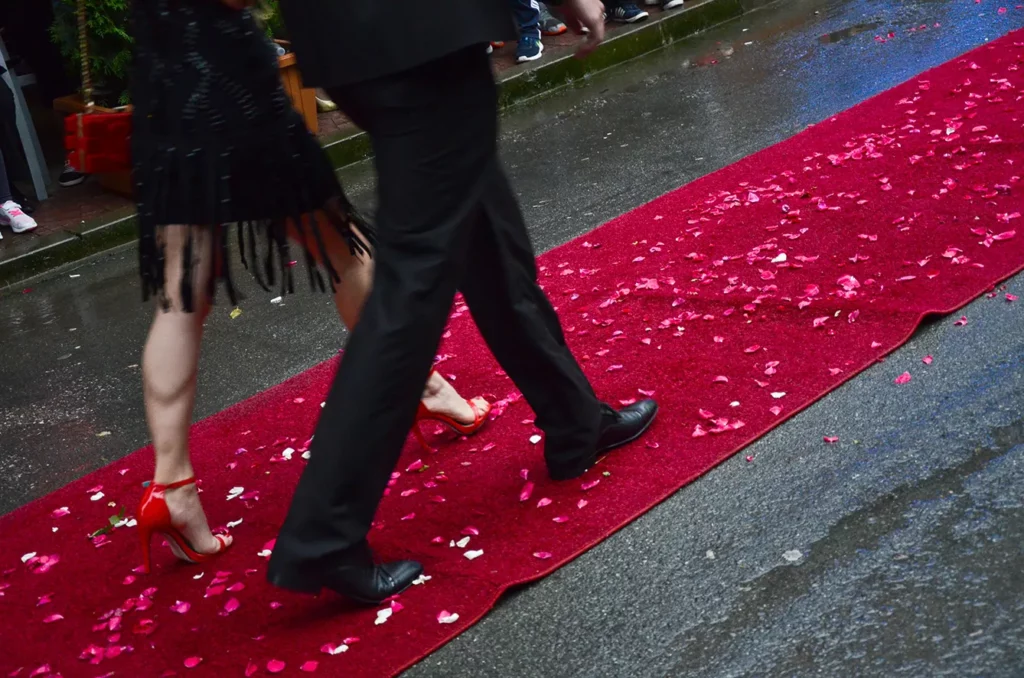
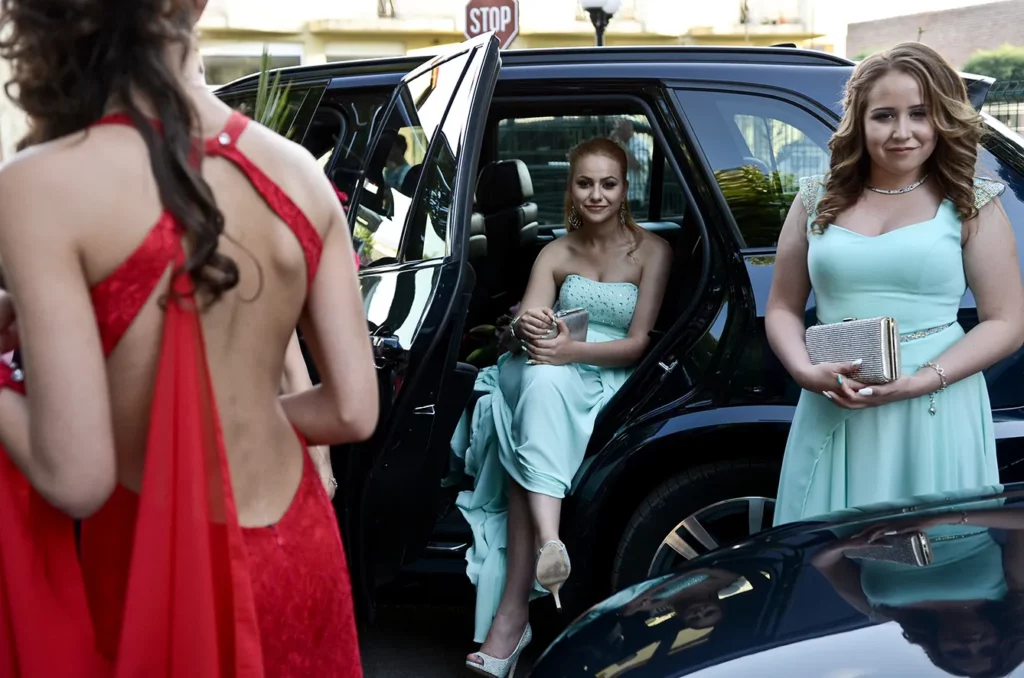
“Pomposity is a deep-rooted tradition. But in recent years, in my capacity as a school principal, I haven’t seen lavish ball gowns. There’s a certain restraint, modesty even, in how my students mark their graduation. I’m also glad that students are aware of the financial costs and stepping up and organizing donations for students who can’t afford to cover all costs. Some of our students also donate their clothes after the prom. Rather than gather dust in the closet, these outfits are going to students in need,” tells 3Seas Europe Dimo Georgiev, Principal of Nikola Vaptsarov High School in Shumen in northeastern Bulgaria.
Plea for austerity
Decades ago, graduating from high school was a much simpler affair. In the 1960s, serenades were performed under teachers’ windows for several nights before prom. The songs of favorite teachers were sung live by the graduates to guitar accompaniment. After the serenade, the teachers would invite the seniors for a treat at home that excludes alcohol. Back then, on the last day of school, graduates would sign each other’s white uniform shirts as a memento.
A decade later, in the 1970s, the reunion of the whole family clan to celebrate graduation became the norm. Preparation for the big day obliged parents to start looking for original fabric and shoes for their children a year in advance. For this purpose, they spared no expense and went as far as East Germany, Germany, the Czech Republic, Romania, and Hungary to procure the perfect outfit. In the seaside cities of Varna and Burgas, connections were used with sailors traveling to Italy, France, and England to secure original outfits after being provided with all necessary sizes in advance.
In the 1960s, silver thread embedded in the dress’s fabric was all the rage. In the 1980s, silver and gold fabrics with woven lamé were in fashion. Ladies’ hair was pulled up in a bun, and shoulder-length bouffant was favored. As for young men, tight trousers were in, and so were long, narrow ties favored by the members of the Beatles.
Nowadays, stylists plea with high school seniors to go easy on their outfits, explaining that contrary to what they might think now, less is more. For many years now, however, the plea for austerity falls on deaf years, but, as we are often told in May during prom week, high school graduation only opens the doors to more learning.


